By Josh Mercer and Steve Cortes | May 13, 2025
Does Pope Leo XIV subscribe to the tenets of the economic agenda of patriotic populism?
Well, it seems so, as he officially revealed his thinking behind his papal name, telling cardinals in Rome that he chose it “mainly because Pope Leo XIII in his historic encyclical Rerum Novarum addressed the social question in the context of the first great industrial revolution.”
The Pope further explained that “the Church offers to everyone the treasury of her social teaching in response to another industrial revolution,” one that includes the promises and perils of artificial intelligence.
So, we Americans should consider the teachings of this pope’s predecessor, by moniker, Leo XIII.
Such inquiry reveals an economic model that aligns totally with the America First vision: a pro-worker populist framework, flowing from the political right.
Regarding America broadly, here are Leo XIII’s thoughts on the United States in 1895: He “esteemed and loved exceedingly the young and vigorous American nation, in which We plainly discern latent forces for the advancement alike of civilization and of Christianity.”
On the economy, his landmark 1891 encyclical, Rerum Novarum (Of New Things), reconciled and tamed the modern era of industry with Christian ethics.
Leo XIII completely rejected socialism as antithetical to Christianity. Marxist ideologies dehumanize individuals, promote atheism, and elevate the state to a place of deceptive sacredness. The Church has always opposed the seizure of private property and production, which distorts the state into a false god distributing benefits.
He also rejected raw commercialism that diminishes humans as mere cogs in a giant economic machine. Rather, Rerum Novarum explained the Catholic vision for a thriving, private-sector economy. It explained clearly that private ownership of enterprise “is not only lawful, but absolutely necessary.”
Those enterprises must then promote the common good by uplifting the inherent and profound dignity of workers. Leo XIII also insisted that laborers had a right to collectively organize and to demand just and humane working conditions.
With these papal teachings, Leo XIII reaffirmed what followers of Jesus have believed for time immemorial: A thriving society must prioritize workers to ensure the success and prosperity of families and communities – rather than just credentialed elites, the state, or multinational conglomerates.
We Catholics pay homage to the precepts of economic subsidiarity and distributism, as explained eloquently by G.K. Chesterton. A vibrant nation requires that decision-making and economic power be dispersed throughout the land. Only then can a society flourish. In comparison, efficiency studies from Harvard Business School ring hollow.
Notably, this philosophy does not slouch into the tyranny of socialism, as strict Austrian economics adherents might suggest. Instead, this authentic Christian approach to the economy elevates the necessity of private enterprise, while concurrently insisting that public policy be ordered toward the common good, rather than toward maximum efficiency that rewards a connected few.
Turning to domestic U.S. politics, voters have moved massively on pro-worker issues toward the patriotic populist movement. In fact, for three months straight now in 2025, TIPP Insights national polling for the League of American Workers has found that voters identify the GOP as the “party of workers” over the Democrats, a seismic political shift over prior eras in American politics. Working-class people, without a college degree, identify the new America First GOP as the “party of workers” by a stunning +14% margin, 47-33%.
In addition, U.S. Catholics, many of whom are working-class citizens, delivered Trump’s amazing victory last November, especially with large Catholic populations in key battleground states like Wisconsin, Michigan, and Pennsylvania. Trump earned a massive +11% margin among Catholics nationwide. This landslide among voters in the largest denomination in America powered his incredible popular vote triumph.
So, does the election of Leo XIV signal a new understanding from the Vatican regarding the economic populist nationalist movement in America and around the globe?
As an American, he clearly understands the reality of politics in the United States today. We grapple with an unhappy and restless citizenry. That anxiety has many sources, including aggressive secularization. But a large part of the justifiable anger flows from frustration with an economic model that delivers massive benefits to a small cabal of interconnected globalists, while the masses struggle to simply afford the basics of life.
For instance, young adults face economic hurdles that were unknown to their parents and grandparents. Homeownership seems impossible under the worst housing affordability ratios in U.S. history. No wonder young adults recoil from marriage and parenthood.
In addition, American workers have, for decades, faced a near-constant flow of illegal aliens, pouring into the United States to compete unjustly and unlawfully against American citizen laborers, depressing wages. On this topic, the gulf between the Vatican and the America First movement is wide. But even here, if the new Pope Leo is indeed reviving the approach of the prior Pope Leo, then he will clearly ascertain that porous borders do grave harm to workers.
So, let’s work and pray to make the Rerum Novarum world a reality.
There are valid reasons to hope that Pope Leo XIV will welcome this challenge – to create the kind of society we want. Not one obsessed simply with topline GDP, but rather an America of bountiful private enterprise where families thrive, small businesses blossom, and the common good becomes paramount.
Josh Mercer is vice president of CatholicVote.
Steve Cortes is a former advisor to President Donald Trump and Vice President J.D. Vance and a former commentator on Fox News and CNN.
Original article link
TIPP Takes
Geopolitics, Geoeconomics, And More
1. Zelensky Vows To 'Do Everything' To Ensure Direct Talks With Putin In Turkey - BBC
"We will do everything to ensure that this meeting takes place," Ukrainian President Volodymyr Zelenskyy told reporters in a hastily arranged briefing in Kyiv.
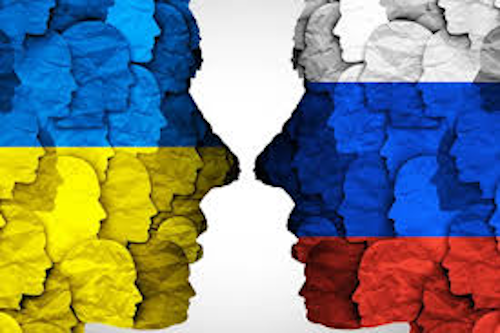
Russia has not yet announced who will fly to Istanbul, only that it will be announced "as soon as [Putin] deems it necessary." Putin and Zelensky have not met since December 2019. Direct talks between the two countries last took place in Istanbul in March 2022, in the early weeks of Russia's full-scale invasion of Ukraine.
2. Ukraine Open To Trump Joining Russia Talks In Türkiye - TIPP Insights
“All of us in Ukraine would appreciate it if President Trump could be there with us at this meeting in Türkiye. This is the right idea. We can change a lot,” Ukrainian President Volodymyr Zelenskyy said in a post on X.
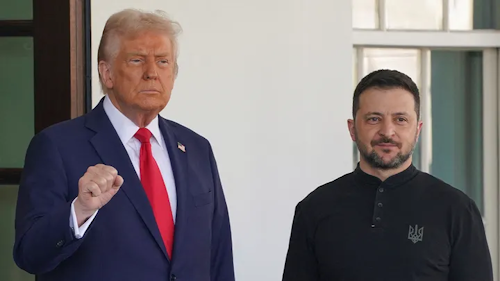
This comes after Trump mused about flying to Turkey to join the discussions: “I was thinking about actually flying over there. There’s a possibility of it, I guess, if I think things can happen, but we’ve got to get it done.”
3. UN Body Rules Russia Responsible For Downing Of MH17 - TIPP Insights
Russia was responsible for the downing of Malaysia Airlines flight MH17 over eastern Ukraine in July 2014, the United Nations aviation agency has ruled.
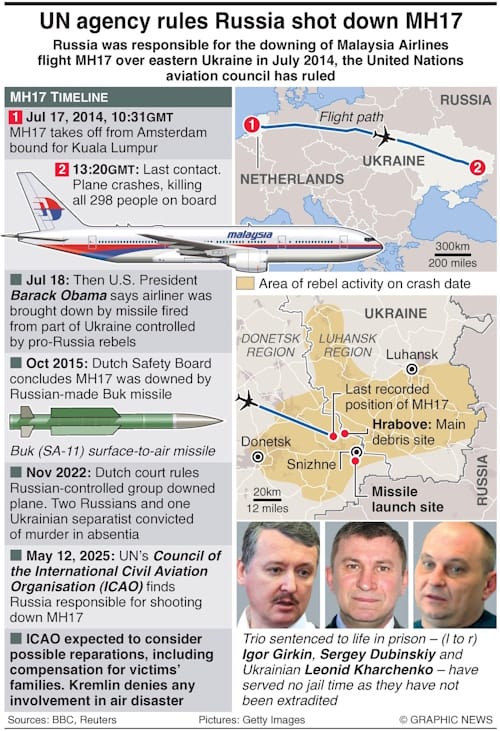
On Monday, the UN’s Council of the International Civil Aviation Organization (ICAO) voted that the Russian Federation failed to uphold its obligations under international air law, which requires states to “refrain from resorting to the use of weapons against civil aircraft in flight”.
4. U.S. Cuts Tariffs On Small Parcels From Chinese Firms Like Shein And Temu - BBC
According to a White House statement, the new tariffs on small packages worth up to $800 have been cut from 120% to 54%. The flat fee per parcel will remain at $100, while a $200 charge due to apply from 1 June has been cancelled.

The latest rates came after the U.S. and China released a joint statement announcing they would temporarily reduce their tit-for-tat tariffs and start a new round of trade negotiations.
5. China Deepens Ties With Latin America During Beijing Forum - D.W.
China extended a credit line of $9.2 billion to Latin American and Caribbean countries at a summit in Beijing, with one catch: the credit would be in the Chinese yuan.
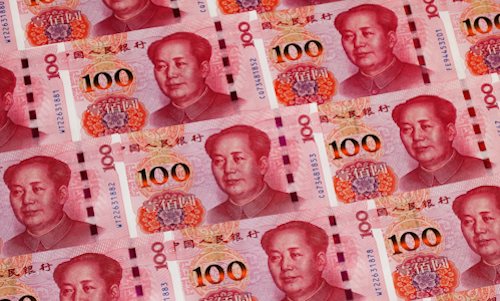
The move, which excludes the global reserve currencies like the U.S. dollar, is meant to push Chinese currency domination at a time the Asian superpower has been deepening its strategic ties in Latin America. In a thinly veiled dig at the United States, Chinese President Xi Jinping said, "There are no winners in tariff wars or trade wars. Bullying and hegemony will only lead to self-isolation."
6. U.S. Announces New Sanctions On Iran Oil Sales To China - AFP
"The United States is today sanctioning an international network facilitating the shipment of millions of barrels of Iranian crude oil worth billions of dollars to China," State Department spokeswoman Tammy Bruce said in a statement.
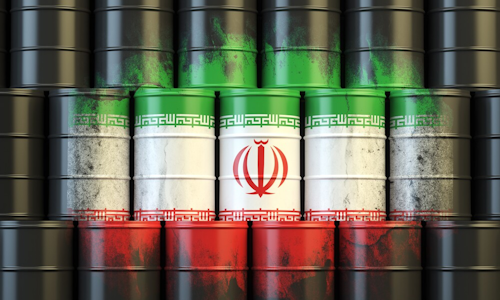
She added that the sales were being conducted "on behalf of Iran's Armed Forces General Staff (AFGS) and its front company, Sepehr Energy." The sanctions follow similar designations in recent weeks, at the same time as Washington and Tehran have stepped up nuclear talks.
7. Trump Meets Gulf Allies In Middle East Trip - TIPP Insights
In his first major diplomatic trip of his second term, President Donald Trump aims to secure investment, trade, and technology deals from Gulf allies amid ongoing regional conflicts, including Israel’s war in Gaza.
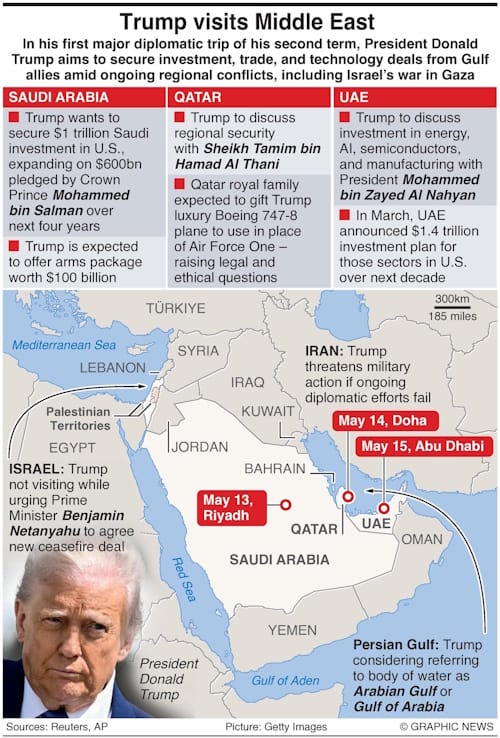
8. Israel Left Off Trump’s First Foreign Itinerary - TIPP Insights
President Donald Trump’s decision to skip Israel on his first Middle East tour has raised questions about the strength of U.S.-Israel ties under his leadership, according to The Wall Street Journal.
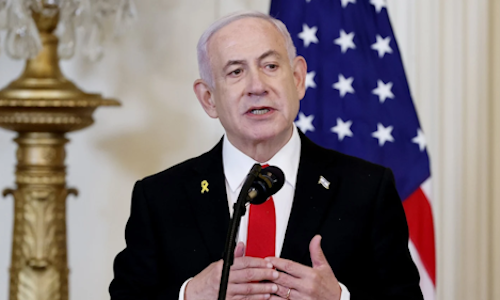
Trump is visiting Saudi Arabia, Qatar, and the UAE, but not Israel, a move seen by some in Jerusalem as symbolic. Israeli officials were reportedly surprised by Trump’s recent direct negotiations with Hamas and Iran, as well as his decision to halt military action against the Houthis without consulting Israel.
9. U.S. And Saudi Arabia Ink $142 Billion Defense Deal - TIPP Insights
The deal will supply Riyadh with advanced military equipment and services from American defense contractors. The agreement is part of a wider $600 billion Saudi investment commitment in the U.S. economy, according to a White House factsheet.
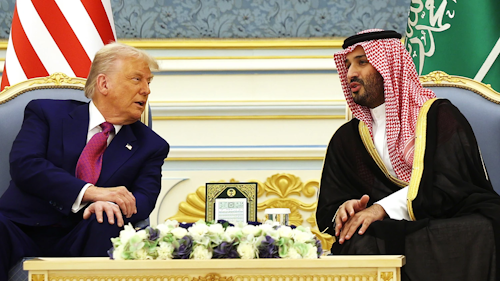
Officials say the defense and energy packages will boost American manufacturing and job creation while reinforcing military and industrial links between Washington and Riyadh.
10. Sam Altman Meets Saudi Crown Prince With Trump In Riyadh - TIPP Insights
OpenAI CEO Sam Altman was greeted by Saudi Crown Prince Mohammed bin Salman at the Royal Court in Riyadh on Tuesday, in a high-profile moment captured alongside U.S. President Donald Trump.
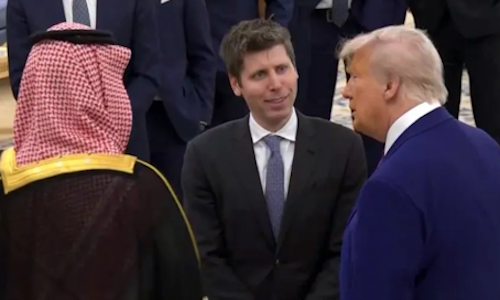
Altman joined Tesla CEO Elon Musk and Nvidia CEO Jensen Huang in meeting the Crown Prince ahead of the U.S.-Saudi investment forum, signaling Saudi Arabia’s deepening push into artificial intelligence and next-generation tech.
11. 'Most Destructive Force:' Trump Warns Iran And Extends One Last Offer- TIPP Insights
President Donald Trump issued a warning to Iran during his remarks at the Saudi-U.S. Investment Forum in Riyadh, calling the regime the “most destructive force in the Middle East” and urging its leaders to choose peace, or face consequences.
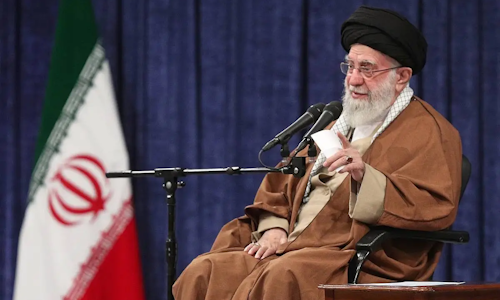
“Iran can have a much brighter future,” Trump said, “but we will never allow them to threaten America and our allies with terrorism or a nuclear attack.” He blamed Tehran for “unthinkable suffering” across Syria, Lebanon, Gaza, Iraq, and Yemen.
12. Trump Drops Syria Sanctions After Crown Prince Request - TIPP Insights
President Donald Trump announced the end of U.S. sanctions on Syria during remarks at the Saudi-U.S. investment forum in Riyadh, saying it was time to “give them a chance at greatness.”
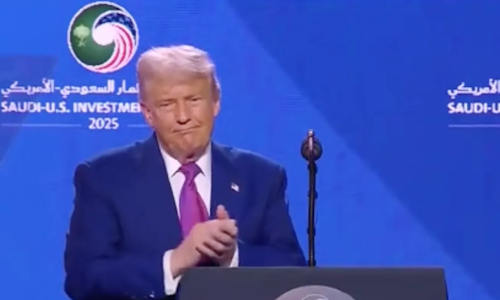
He said the decision followed talks with Saudi Crown Prince Mohammed bin Salman, Turkish President Recep Tayyip Erdoğan, and "friends and people he respects in the Middle East."
13. ‘New Beginning:’ Syria Hails Trump Sanctions Move, Praises Saudi Role - TIPP Insights
Syrian Foreign Minister Asaad al-Shibani hailed President Donald Trump’s decision to lift U.S. sanctions on Damascus as a “new beginning” for Syria’s reconstruction.
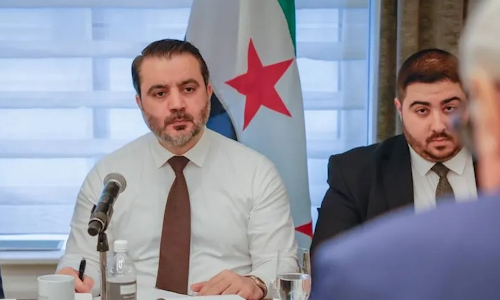
In a message posted on X, Google-translated from Arabic, Shibani offered “sincere thanks and appreciation” to Saudi Arabia’s leadership, calling the move a “victory for justice” and an affirmation of Arab unity.
14. Trump Freezes Aid to South Africa Over White Farmers' Persecution - TIPP Insights
President Trump has halted all U.S. financial assistance to South Africa, citing concerns over land seizures, alleged violence against white farmers, and the country’s genocide case against Israel at the International Court of Justice.
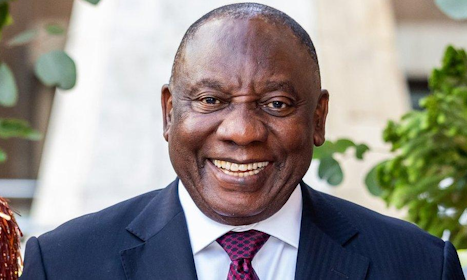
Speaking this week, Trump warned he may skip the G20 summit in South Africa this November unless “the situation is taken care of.” South African President Cyril Ramaphosa, dismissed the allegations, stating that some Afrikaners left the country due to resistance to post-apartheid racial reforms.
15. North Korea’s 1st Daughter Makes Debut At Diplomatic Event With Kim Jong Un - RFA
North Korean leader Kim Jong Un visited the Russian Embassy in Pyongyang to mark the 80th anniversary of the Soviet victory in World War II — accompanied by his daughter, Kim Ju Ae, in her first-ever appearance at an official diplomatic event.
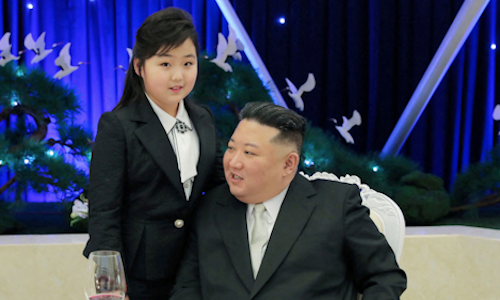
North Korea’s state-run Korean Central News Agency (KCNA), for the first time, referred to Kim Ju Ae as Kim Jong Un’s “most beloved daughter.” Until now, state media had typically described her using honorifics such as “respected child,” “beloved child.”
16. U.S. Revokes Temporary Protection For Thousands Of Afghans - RFE/RL
The U.S. Department of Homeland Security announced an end to temporary protections for some Afghans living in the United States, citing improved security and economic conditions in Afghanistan.
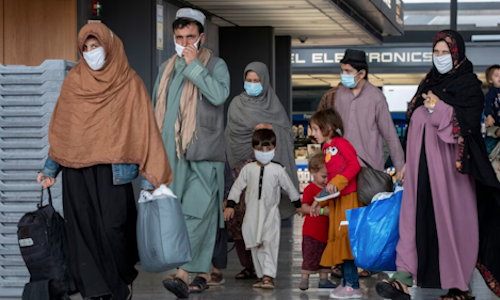
Secretary of Homeland Security Kristi Noem said Afghanistan's TPS (temporary protected status) designation would expire on May 20, and the termination would take effect on July 12. TPS is designed for foreign citizens who cannot return home because of war, natural disasters, or other "extraordinary" conditions.
17. Nissan To Shut Plants, Ax 20,000 Jobs After Logging FY 2024 Net Loss - Kyodo News
Nissan Motor Co. said it will shut seven vehicle plants and cut 20,000 jobs globally, more than double the initially planned number, to speed up restructuring after logging a net loss of 670.90 billion yen ($4.5 billion) for fiscal 2024.

Japan's third-biggest automaker by volume, which has been grappling with poor sales in the United States and China, will now see its total workforce reduced by around 15 percent. To address overcapacity issues, its vehicle plants will be reduced from 17 to 10, including some in Japan, by fiscal 2027.
18. SoftBank Group Posts First Annual Profit In Four Years Amid AI Pivot - Nikkei Asia
SoftBank Group reported a 1.1 trillion yen ($7.7 billion) net profit for the fiscal year ended in March, the first time its first annual earnings have finished in the black in four years, helped by gains from selling T-Mobile shares.

The result topped market expectations of a 681.9 billion yen profit, which represents the average forecast of 10 analysts as compiled by Quick as of Monday. It is a turnaround from the previous fiscal year's 227.6 billion yen net loss.
19. Microsoft To Lay Off About 3% Of Its Workforce - A.P.
The tech giant didn't disclose the total number of lost jobs, but it will be about 6,000 people.

The 3% cuts will be Microsoft's biggest reported layoffs since early 2023, when the company cut 10,000 workers, almost 5% of its workforce, joining other tech companies that were scaling back their pandemic-era expansions.
20. Dubai Government Opens Door To Accepting Crypto For Service Fees - CoinDesk
Dubai agreed to allow cryptocurrency payments for government services in a deal with crypto exchange Crypto.com, taking a step toward implementing its plan for a cashless society.
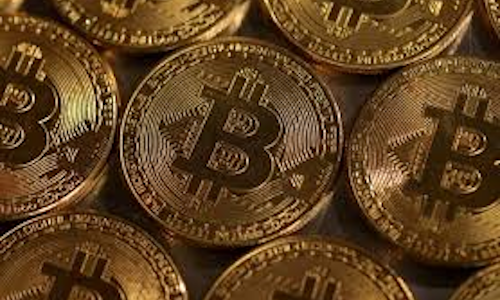
Once technical details are complete, the agreement will allow individuals and businesses to pay fees using digital wallets from Crypto.com, which is licensed by the emirate's Virtual Assets Regulatory Authority (VARA). The platform will then convert the amounts into dirhams for payment, according to a press release.
21. Coinbase Becomes First Bitcoin And Crypto Company To Join The S&P 500 - Bitcoin Magazine
Coinbase Global Inc. (NASDAQ: COIN) will officially join the S&P 500 on May 19. It will replace Discover Financial Services (NYSE: DFS), which is being acquired by Capital One Financial (NYSE: COF), an existing index member.

This is a big move for Coinbase and an even bigger signal for Bitcoin. A crypto company being added to one of the most important indexes in the U.S. shows how far this industry has come. It’s not just hype anymore—it’s becoming a real part of the traditional financial system.
22. Blood Testing Could Spot Cancer Early, Study Says - HealthDay News
Researchers reported in BMJ Open that the multi-cancer early detection blood test could help more people survive cancer if conducted every year or every other year.
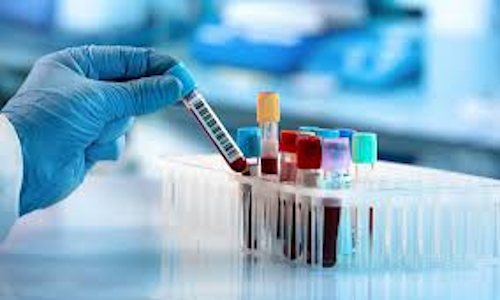
"Both annual and biennial MCED screening intervals have the potential to avert deaths associated with late-stage cancers when used in addition to current guideline-based cancer screening," concluded a research team. The blood test looks for many different cancer-specific signals, including DNA fragments shed by tumors, researchers said.









